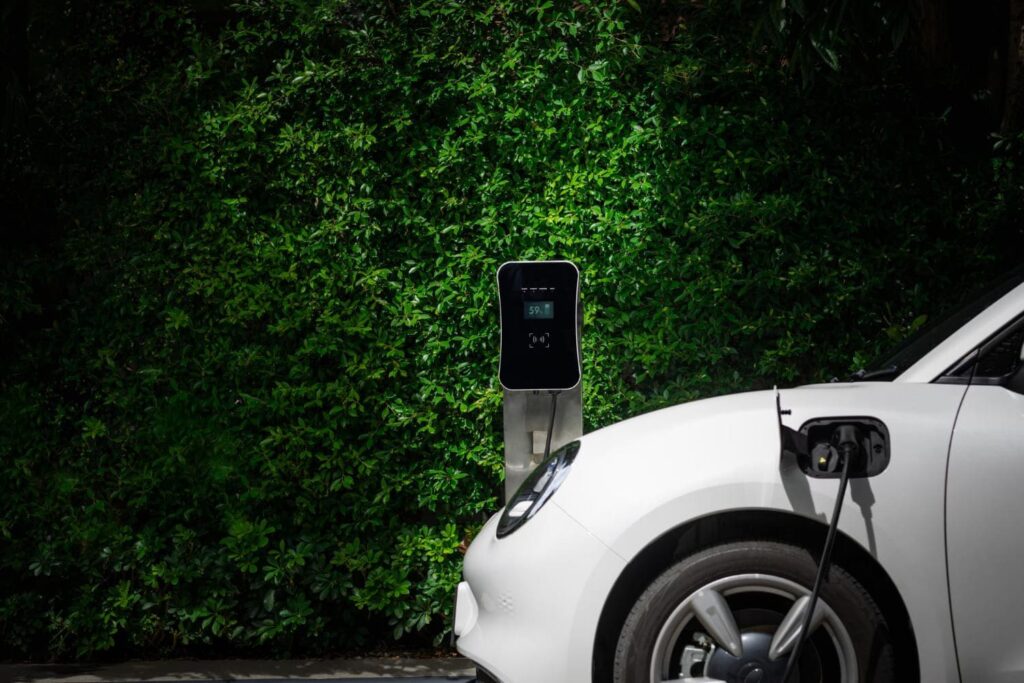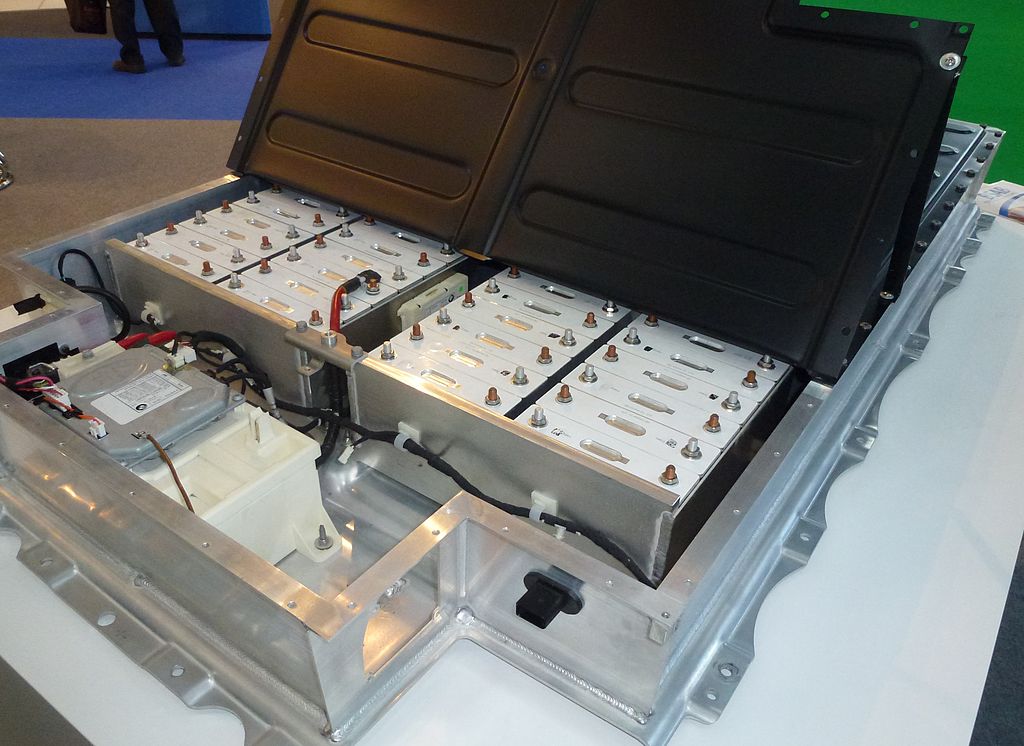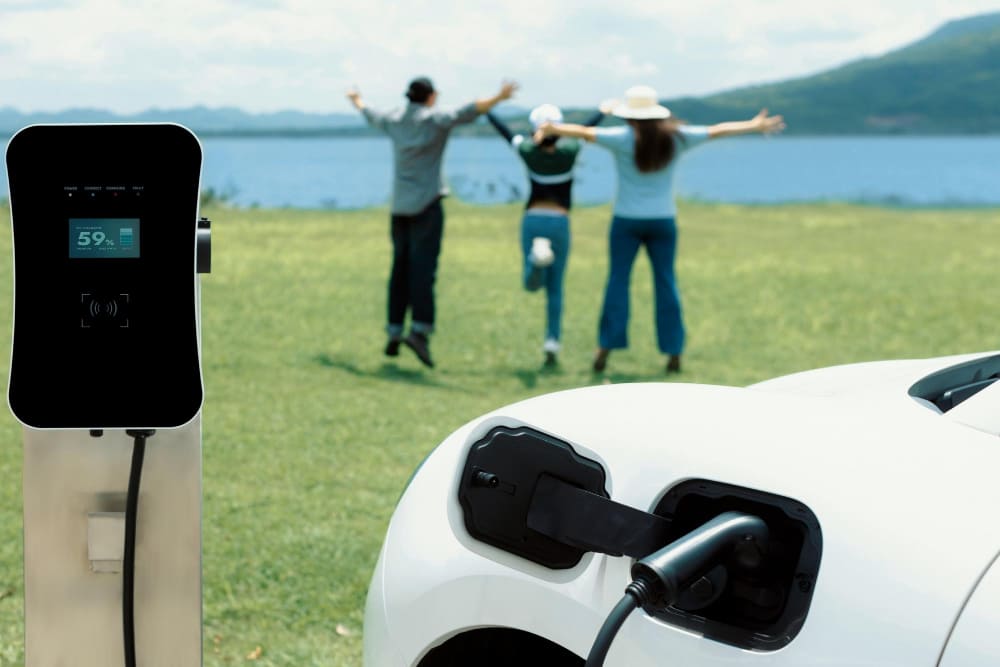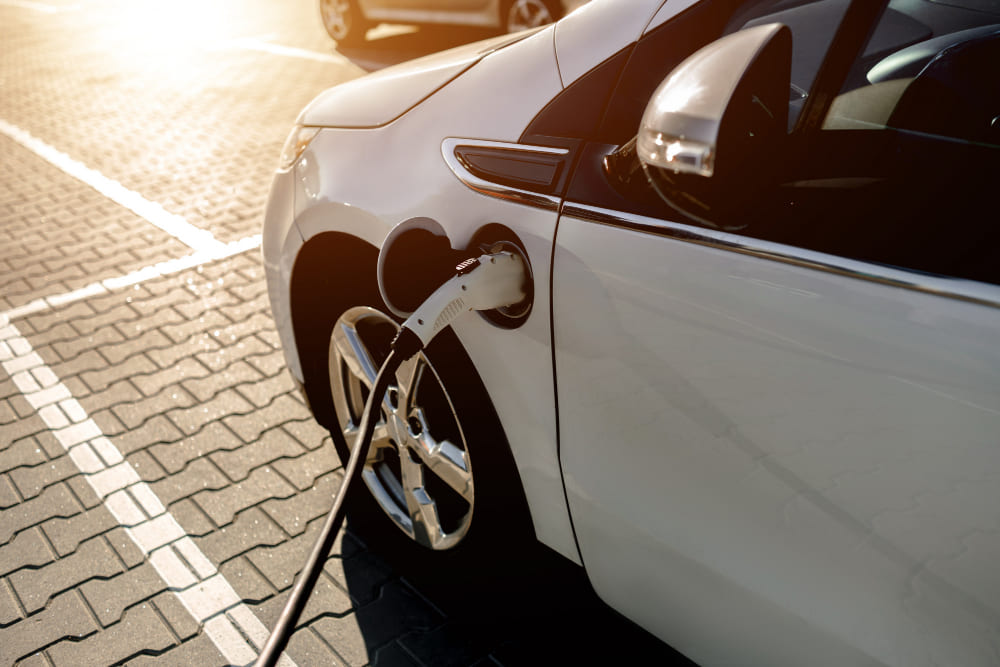Recently, people have been turning to electric vehicles (EVs) to reduce their carbon footprint. However, while EVs themselves produce zero emissions, there is still a common misconception that the process of charging them is harmful to the environment.
Ahead, we’ll explore the environmental benefits of electric vehicle charging and why it is crucial in reducing our carbon footprint.
Environmental Benefits
We’ll highlight some of the environmental benefits of electric vehicle charging. From promoting renewable energy to increased conservation of natural resources, check out these benefits!
Support and promote renewable energy

EV charging with electricity from renewable sources reduces the reliance on non-renewable energy sources, such as coal, fossil fuels, or natural gas. This shift towards renewable energy helps combat climate change and supports the growth of the renewable energy industry.
A study concludes that smart charging systems using electricity for EVs can reduce overall energy system costs.
In addition, promoting renewable energy through EVs can help create a more sustainable future.
Increasing the demand for renewable energy can encourage investment in this industry, leading to job creation and economic growth. As a result, this helps create a positive cycle of sustainability and prosperity, making it one of the environmental benefits of electric vehicle charging.
Support sustainable transportation

EV charging can support sustainable transportation by using renewable energy sources to reduce carbon emissions, installing charging stations in locations that promote sustainable transportation, and reducing traffic congestion in urban areas.
These efforts help encourage people to make a switch to electric cars. Eventually, it can create a cleaner and more sustainable future of transportation for generations to come.
Recyclable or reusable batteries

Unlike traditional gasoline-powered vehicles that require oil changes and generate hazardous waste, EVs rely on battery packs for power. These battery packs can be reused or recycled, reducing waste and mitigating the environmental impact of transportation.
Reusing batteries from electric vehicles is becoming increasingly popular, with many automakers exploring ways to repurpose batteries after their life in a car has ended.
For example, Nissan once worked on a project that used Nissan LEAF EV batteries to power streetlights in Japan. This creates a second life for the battery, reduces waste, and promotes sustainable community initiatives.
In addition, many EV battery packs are designed with recyclability in mind so that they can be broken down and recycled to recover valuable materials, such as cobalt and nickel.
By recycling these materials, we reduce the need for new mining and production, further decreasing the environmental impact of transportation.
Reduction of greenhouse gasses and improve local air quality

EV charging stations offer renewable energy to power EVs, reducing fossil fuel reliance and carbon emissions. This helps combat climate change by minimizing greenhouse gas emissions, particularly carbon dioxide.
Furthermore, EV charging stations improve air quality in urban areas by reducing harmful air pollution with pollutants like nitrogen oxides and particulate matter.
By providing a cleaner energy source for transportation, EV charging stations play a vital role in creating cleaner air and healthier communities.
Increased conservation of natural resources

EVs require fewer natural resources to produce than conventional vehicles powered by gasoline, such as petrol and diesel cars. EVs don’t have an internal combustion engine, requiring fewer parts and less material to manufacture. This includes fewer metals like steel and aluminium, which are utilized in traditional vehicle production.
Moreover, EV batteries can be recycled and reused, reducing the need for new resources. Lithium-ion batteries, commonly used in EVs, can be broken down to recover valuable materials like cobalt, nickel, and lithium, reducing the need for new mining and production.
Frequently Asked Questions
Why are electric vehicles a better choice for the environment?
EVs are better for the environment since they release zero emissions, promote energy efficiency, and support renewable charging, which promotes clean air and a sustainable future.
What type of vehicle has the least pollution emissions?
Electric vehicles have the least pollution emissions since they produce zero tailpipe emissions and run on electricity instead of fossil fuels.
Is Tesla good for the environment?
Yes, Tesla is good for the environment. They produce electric vehicles with zero tailpipe emissions, offer solar panels and battery storage solutions, use recycled materials in their vehicle production, promote sustainability, and adopt responsible waste management practices.
Conclusion
In conclusion, the environmental benefits of electric vehicle charging are undeniable. EV charging stations provide a renewable energy source to power EVs, reducing our reliance on fossil fuels and decreasing carbon emissions.
By minimizing greenhouse gas emissions, EV charging stations play a prime role in mitigating climate change effects. Moreover, they contribute to better air quality in urban areas by reducing harmful pollutants from traditional vehicles.
Let’s drive towards a sustainable transportation revolution with EV charging. And if you’re interested in joining the club, you can start with a secondhand electric car. Visit Kilowatt Cars now to view the best-quality selections of secondhand electric vehicles!






